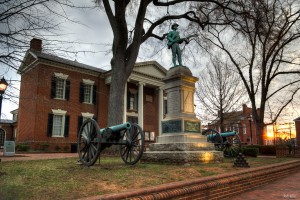 Recently, the Virginia Supreme Court clarified how property owners appealing adverse zoning determinations must style their case and who must be named as a party to such a proceeding.
Recently, the Virginia Supreme Court clarified how property owners appealing adverse zoning determinations must style their case and who must be named as a party to such a proceeding.
In Frace v. Johnson, the Virginia Supreme Court held that the landowner had not properly appealed an adverse zoning determination to the Fairfax Circuit Court where she failed to name the Fairfax County Board of Supervisors as a party in the petition and did not serve the petition on the Board. Instead, following Virginia Code § 15.2-2314, she styled her petition as required by the statute, then served a copy of her petition on the Chair of the Board of Zoning Appeals within the 30-day limitation. The Fairfax County Zoning Administrator moved to dismiss the petition, because it did not name the Board of Supervisors as a party to the petition within the 30-day limitation.
The circuit court and Virginia Supreme Court agreed. The Court noted that the Virginia Code specifically states the local governing body is a necessary party to the case, and the BZA is not. Because the Board of Supervisors was not named within the time limits set out by law, the Board did not have proper notice of the appeal. The Court also noted that this failure could not be corrected by amending the petition after the 30 days expired, because the Board did not waive this issue. Instead, Frace should have styled her petition as required by the Virginia Code and then named the Board of Supervisors as a necessary party in the body of her petition.
As we have described elsewhere on this blog, appealing an adverse zoning determination is not always a simple task. The Virginia Code establishes the standards and methods for filing a claim, and Virginia case law describes the necessary legal elements of these cases. All in all, appealing a zoning determination contains specific steps a landowner must take to perfect their claim.

